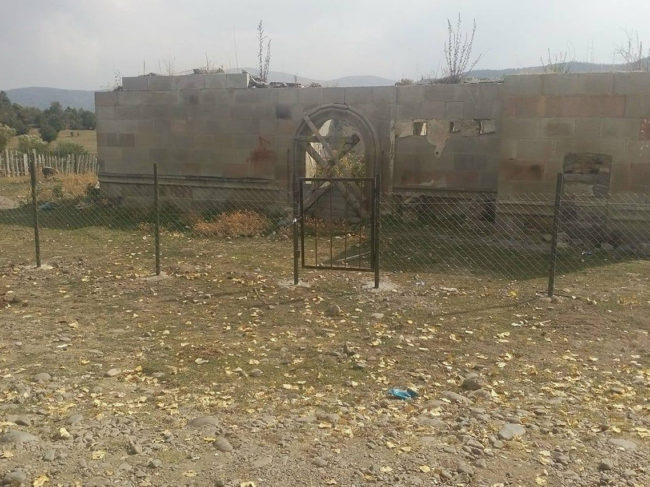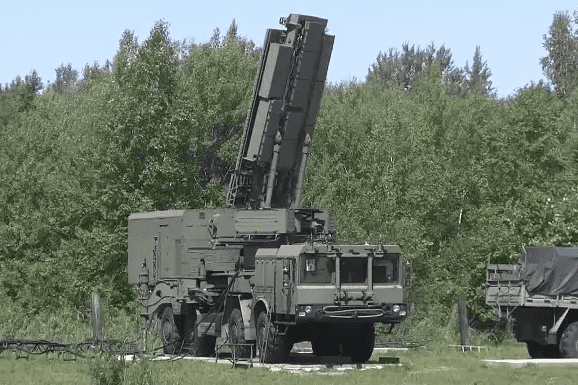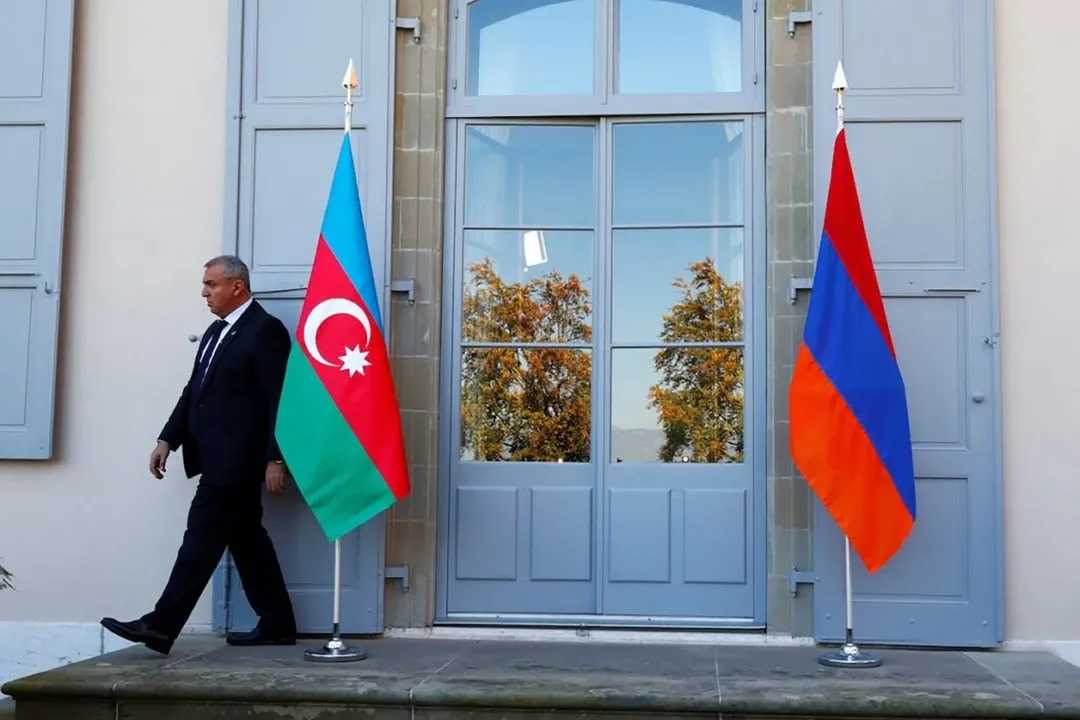

 Muslims from the village of Mokhe in southern Georgia’s Adigeni Municipality claim they are facing threats from the local Christian authority. Archimandrite Nikoloz Getsadze of Zarzma Monastery warned Muslims to stay away from a disputed building claimed by both local Christians and Muslims, at a spot which muslims used to pray every Friday, local Muslim Tamaz Beridze told OC Media.
Muslims from the village of Mokhe in southern Georgia’s Adigeni Municipality claim they are facing threats from the local Christian authority. Archimandrite Nikoloz Getsadze of Zarzma Monastery warned Muslims to stay away from a disputed building claimed by both local Christians and Muslims, at a spot which muslims used to pray every Friday, local Muslim Tamaz Beridze told OC Media.
After being prohibited from entering the building late in 2016, Muslims started to pray outside. They have now been forced to move again, as on 14 September local authorities began sealing off the ruins of the building to undergo conservation.
‘He [Nikoloz Getsadze] came up on Thursday. He said, he was closing the gates and that we couldn’t enter the area anymore. He promised to break anyone’s leg who’d dares to step in. The whole village was here, policemen were here, the municipal head was here’, says Beridze.
The following day, when Muslims gathered for Friday prayers, Getsadze showed up again, standing in the gate to keep Muslims away. Beridze says, he was standing there while muslims were forced to say their prayers further from the building. Getsadze did not appear in Mokhe today.
It is still unknown when the conservation work will start, but on 14 September, the National Agency for Cultural Heritage told Liberali they will also work on identifying the origins of the building.
[Read on OC media: Mokhe’s ‘disputed building’ to be sealed off for conservation]
Growing tension
Despite Mokhe being a predominantly Muslim village, local Muslims claim they face discrimination from the municipal authorities, who are Christian.
Tensions flared between the two communities in 2014, when the municipality announced plans to turn the building into a library. Construction workers who showed up in the village accompanied by the police were met by members of the local Muslim community who tried to prevent the construction works. A clash with police broke out and 14 protesters were arrested.
A 2015 report by Georgia’s Public Defender said that local Muslims complained about verbal and physical abuse from the police, who called them ‘Tatars’, which is a slur for Georgian Muslims. The report confirms that the protesters had signs of physical violence used against them. No official investigation into the case was opened.
In October 2016, when local Muslims held prayers inside the building’s walls, police blocked the entrance and taped off the building due to protests by members of the local Christian community. Since then, local Muslims have been praying in front of the ruins.
There is no other mosque in Mokhe and the Muslim community have also been using a private house for prayers.
The disputed past of the ruins
In late 2014, an official commission was created to determine the origins of the ruins. Zaza Vashakmadze, the head of the State Agency of Religious Issues told Liberali in October 2016 that the issue would be solved through consensus, as the archaeological expertise would cost up to $200,000. The commission announced its decision in May 2017, saying the building couldn’t be attributed to either side.
According to the commission, its main achievement over the years has been ‘restoring dialog between people’. The commission ruled to give the local Muslim community a plot of land in the village to construct a new mosque, declaring the ruins a cultural heritage site named ‘Disputed Building’. It also asked the National Agency for Cultural Heritage Preservation of Georgia to ensure its maintenance and preservation.
Mokhe’s Muslim community has refused the offer and continues to hold prayers in front of the old ruins. They have expressed dissatisfaction with the commission’s decision, believing it was an attempt to silence them.
‘A neutral establishment’
Since the beginning of the conflict, the Georgian Orthodox Church has insisted that the ruins were of Christian origins. In a press briefing in October 2014, the Metropolitan of Akhaltsikhe and Tao-Klarjeti, Teodore Chuadze, said that archaeological research would prove that there never was a mosque on the site of the building, which was constructed on the ruins of a Christian monastery.
‘We demand the building be delivered to the Patriarchate of Georgia for further management’, Chuadze said.
He also noted that local Christians were in favour of a ‘neutral establishment’, which would not be ‘insulting for either religions’.
In the October 2016, when members of Mokhe’s Muslim community first entered the building for prayers, Chuadze held another briefing, where he denounced their actions as ‘provocative’ and called on the Public Defender and local organisations to protect the rights of Christians in Mokhe and nearby villages, where they are a minority.
A number of Muslims from Mokhe told OC Media in late 2016 that local Christians were being influenced by clergy. Some of them believed that local Christian authorities were afraid of losing control over their parishes and wanted to prevent more mosques from being built.









